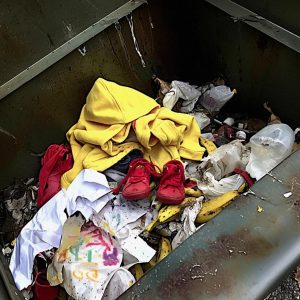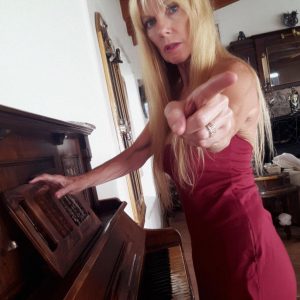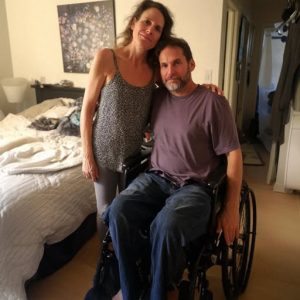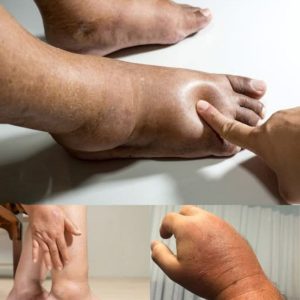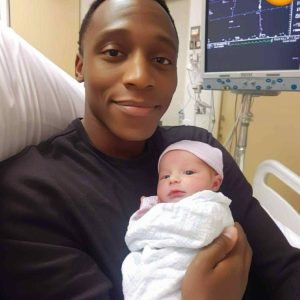We were halfway home from dinner when the traffic stopped. Not slowed. Stopped.
Red taillights stretched ahead like a glowing ribbon into the distance, and the hum of idling engines filled the air. I leaned my head against the window, the glass cool against my temple. It had been one of those days — the kind where you feel like you’ve been carrying the weight of the world in your shoulders — so when the car stayed still for more than ten minutes, my body decided it had had enough.
I closed my eyes for “just a minute.”
When I opened them, something felt… wrong.
The light through the windshield wasn’t the sharp white of headlights anymore — it was soft, pale, almost golden. Dawn.
I sat up quickly, my back aching from the awkward angle I’d slept in. The highway was gone. No endless lines of brake lights. No rows of impatient drivers drumming their fingers on the steering wheel. Instead, we were parked in front of a tiny gas station with a single rusted pump, tucked between a hardware store and a shop with dusty windows.
I was still trying to make sense of it when I saw my husband walking toward the car. He had two steaming paper cups in one hand and a brown paper bag in the other. He smiled like this was the most normal thing in the world.
“Morning,” he said, handing me coffee and the bag.
I blinked at him. “Where are we?”
He shrugged like it didn’t matter. “Got tired of waiting. After about an hour, I took the next exit. Figured we could take the back roads for a while.”
“Back roads?” I repeated. “So… we’re lost?”
“Not lost,” he said, that little half-smile tugging at his mouth. “Just… rerouted.”
Something about the way he said it made me laugh, even though I wanted to be annoyed. I sipped the coffee — surprisingly rich and smooth — and decided to let the rest of my irritation dissolve into the steam curling above the cup.
The roads we took that morning wound through quiet towns where the houses had peeling paint but tidy porches. Fields rolled out in gold and green on either side, and old barns leaned like they were whispering secrets to each other. I rolled the window down and let the cool air brush against my face. It was the first time in weeks I’d felt… light.
Eventually, hunger pulled us into a diner called “Milly’s.” The sign was so faded you could barely read it, but inside, the smell of coffee and frying bacon wrapped around us like a blanket. The waitress called us “honey,” and the pancakes were so fluffy they almost melted on the fork.
Back on the road, we drove in companionable silence until he said, “You remember Tom and Rea? From that wedding last year?”
I nodded.
“They moved out here. Rea told me to drop by if we were ever in the area.”
“That was almost a year ago,” I said.
“Still counts,” he replied.
An hour later, we were in their driveway, and before I could even knock, Rea was pulling me into a hug. Their home was modest but warm, with the smell of bread baking and the faint sound of a record playing in the background. What was supposed to be a quick coffee became three hours of conversation, a tour of their vegetable garden, and more laughter than I’d had in months.
On the way home, I stared out the window. “What if we did this more often?” I asked.
“What? Get lost?” he said.
“No,” I smiled. “Just… slowed down. Took random exits. Talked to people. Lived a little.”
That was the day it started.
We began taking unplanned drives — no maps, no GPS, just a full tank and curiosity. We found a lakeside café with grilled cheese that could cure any bad mood, an old bookstore that only accepted cash, and once stumbled upon a couple celebrating their 50th anniversary on the porch of a roadside motel. They told us about their first date, their worst fight, and how they still wrote love letters every year.
It became our tradition. And slowly, it changed us. I stopped checking my phone so much. He started asking more questions. We laughed more. Listened more.
Then one afternoon in a quiet coastal town, we met a girl sitting alone on a bench, hugging her knees. She couldn’t find her mom. We stayed with her until a frantic woman came running from a nearby shop, tears streaming down her face. She hugged her daughter like she’d never let go again.
Walking away, my husband glanced at me. “You falling asleep in that traffic jam… maybe it was supposed to happen.”
I didn’t answer right away, but I felt it too — that sense that small choices can ripple farther than we’ll ever know.
Months later, we were back in that same town when a woman stopped us on the street. It was her — the girl’s mother. She hugged us hard and told us her husband had died two weeks before that day, and losing her daughter, even for a few minutes, might have broken her completely.
She ran a non-profit now, helping grieving families, and she said our blog — the one I’d started to document our little road trips — had inspired her. She handed us an envelope, thanked us again, and walked away, leaving us quiet and holding hands.
That was when I knew: the detour had become the path.
We still take those drives. We still help when we can. And we still believe the best stories start with a wrong turn.

